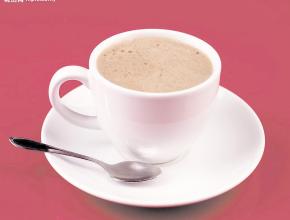Introduction of Tanzanian Kilimanjaro Coffee with "crisp" characteristics
Tanzanian coffee has also been developed in the hands of German and British colonists and has long been loved by Europeans and squeezed into the ranks of famous products. The most favorable factors that make Tanzanian coffee famous are Hemingway and his novels.
Hemingway has been integrated with Tanzania and Mount Kilimanjaro since he embarked on his career as a writer in France. When Hemingway became famous, Tanzanian coffee became famous.
Europeans gave Tanzanian coffee the nickname "coffee gentleman", making it the pinnacle, and the "king of coffee" Blue Mountain, "coffee lady" Mocha and known as the "coffee swordsman".
Mount Kilimanjaro in Tanzania ("Kilima" means mountain, "Zaro" means radiant) is 5895 meters above sea level, connected to Mount Mt.Meru, and is the main coffee production base in Tanzania. Moshi and Alesha, located on the southern slope of Mount Meilu, also produce a large number of high-quality coffee beans. Eighty-five percent of Tanzanian coffee is grown on small farms.
When coffee produced in these regions is sold on the international market, the trademark is usually "Pride of Kilimanjaro (Pride of Kilimanjaro)", "Peaks of Kilimanjaro (Top of Kilimanjaro)", "Tanzania Moses" or "Tanzania Alesha".
After Jesuit introduced bean fruit to Europe in 1893, "Tanzania bean fruit" began to attract attention from all walks of life. For some reason, the yield of "bean fruit" in Tanzania is higher than that of ordinary coffee. In the international market, there are more products with the words "Tanzania beans and fruits" than those with the words "Kilimanjaro".
Generally speaking, Tanzanian coffee has a "crisp" characteristic, exudes delicate aroma, and contains wine and fruit aromas, endless flavor. Locally, it is similar to Kenyan coffee, but overall, it is closer to Sumatra Lloyd's coffee. After drinking Tanzanian coffee, you will feel a soft earthy smell around your mouth. Coffee gourmets often use words such as "wild" or "wild" to describe it. It can be said that pure Tanzanian coffee is "the most African coffee."

Important Notice :
前街咖啡 FrontStreet Coffee has moved to new addredd:
FrontStreet Coffee Address: 315,Donghua East Road,GuangZhou
Tel:020 38364473
- Prev

Introduction to the coffee-growing area of Rwanda with 33000 hectares of coffee plantations
Coffee production in Rwanda: there are about 33000 hectares of coffee plantations in Rwanda and 500000 people are engaged in coffee cultivation. With the good natural conditions of high sea http://www.elsteak.com/ pull and fertile volcanic soil, the country's fertile soil and suitable climate are conducive to plant growth, and coffee trees seem to be driven or forced to grow upward, or because they grow too fast.
- Next

Panama Rosa Coffee with excellent quality and Special Flavor
Pokuit has always been the most high-profile coffee producing area in Panama. There are many famous estates in the region, such as Esmeralda, which is famous for Geisha varieties, Hartman, Mama Cata, Kotowa, Santa Teresa, etc., while Ai
Related
- Does Rose Summer choose Blue, Green or Red? Detailed explanation of Rose Summer Coffee plots and Classification in Panamanian Jade Manor
- What is the difference between the origin, producing area, processing plant, cooperative and manor of coffee beans?
- How fine does the espresso powder fit? how to grind the espresso?
- Sca coffee roasting degree color card coffee roasting degree 8 roasting color values what do you mean?
- The practice of lattes: how to make lattes at home
- Introduction to Indonesian Fine Coffee beans-- Java Coffee producing area of Indonesian Arabica Coffee
- How much will the flavor of light and medium roasted rose summer be expressed? What baking level is rose summer suitable for?
- Introduction to the characteristics of washing, sun-drying or wet-planing coffee commonly used in Mantenin, Indonesia
- Price characteristics of Arabica Coffee Bean Starbucks introduction to Manning Coffee Bean Taste producing area Variety Manor
- What is the authentic Yega flavor? What are the flavor characteristics of the really excellent Yejasuffi coffee beans?

